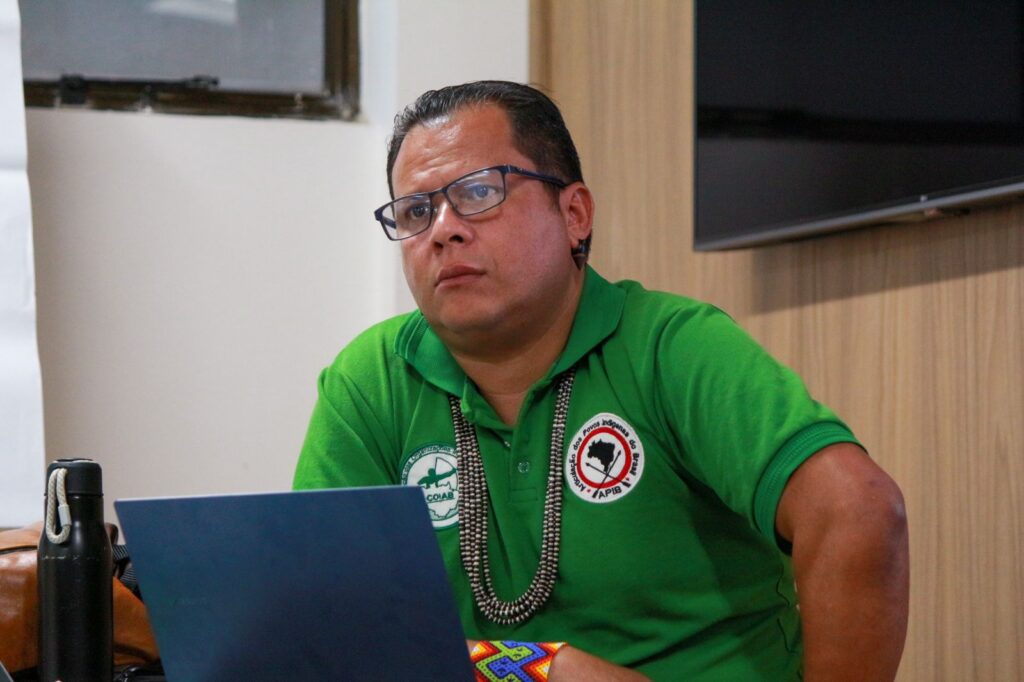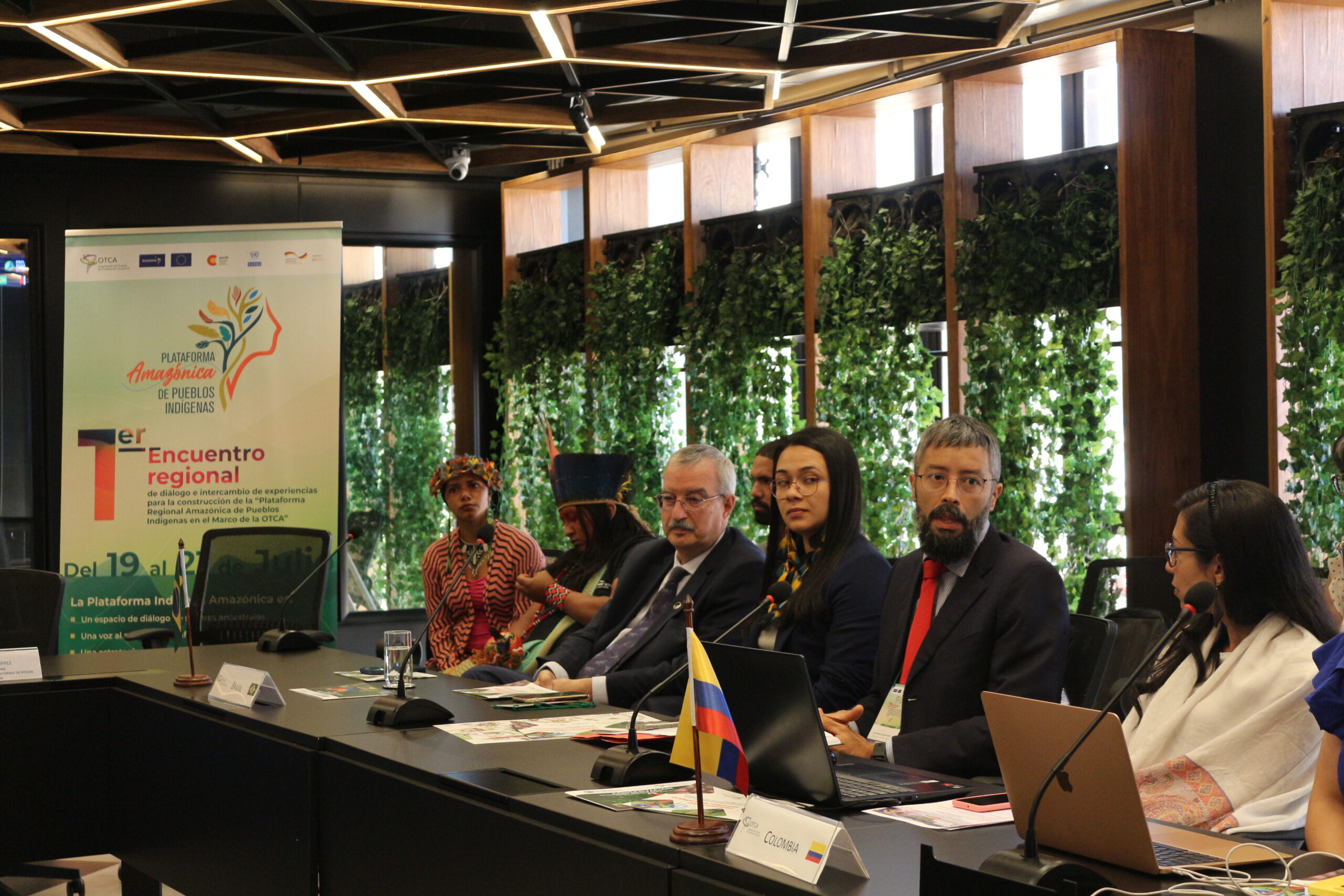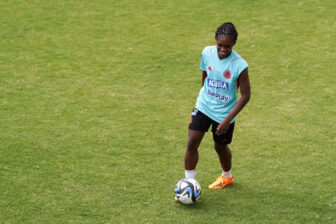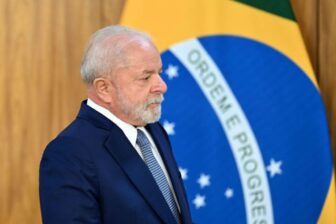Preservation of the Amazon rainforest is increasingly under international scrutiny as headlines across the globe point to climate-related disasters. But the Amazon basin is also home to 50 million people, among them 420 Indigenous groups, that want to be part of any policy discussions happening in the area.
As announced by Brazil’s Luiz Inácio Lula da Silva, then president-elect, at the COP27 conference, the Amazon city of Belém will host a summit of the Amazon Cooperation Treaty Organization (OTCA in its Portuguese and Spanish acronym) on August 8-9, gathering heads of state from the countries that share the Amazon basin to seek a common agenda in the leadup to COP28.
AQ spoke to Kleber Karipuna, member of the organizing committee and executive coordinator of APIB—Brazil’s Indigenous People Articulation. Karipuna is also the head of the Coordination of Indigenous Organizations of the Brazilian Amazon, COIAB, which has long participated in OTCA discussions along with its regional organization, the Coordination of Indigenous People of the Amazon Basin.
This interview was edited for clarity and length.
AQ: How are Indigenous demands and issues represented at the summit?
KK: We see strengthening OTCA as an opportunity. We were surprised to learn that during the almost 40 years of the OTCA, this is only the third presidential summit.
We have a longstanding relationship with the OTCA through the Coordination of Indigenous People of the Amazon Basin (COICA), of which COIAB is a member, and we are using this partnership to reinforce our participation together with organizations from other countries. We include French Guyana, which is not part of the OTCA, but is part of the political structure of the Indigenous movements.
Our main objective is that the proposals of Indigenous peoples of the entire Amazon basin be embraced by presidents and translated into commitments and concrete policies and action. We see our participation in the summit as a signal that we are becoming protagonists, a big change, especially in Brazil after four years of constant attacks against Indigenous peoples, territories and rights.
AQ: What are your main proposals?
KK: A main issue is the protection of isolated peoples and those only recently contacted—especially on the borders of Peru, Venezuela, Brazil and Colombia. The OTCA has a deep concern around this theme, since many countries of the Amazon basin have peoples that choose to stay isolated.
Another major topic is security at the borders. We have recently seen a large increase of illegal groups operating in Indigenous lands, such as drug traffickers. Governments need to commit to action to combat narco-trafficking at their borders.
A third point is land rights. In Brazil we have legislation related to demarcation of territories, while other countries that do not have specific legislation still have demands over land rights. We are working with Indigenous federations around the region to get a commitment from their governments on a policy of land rights guarantees, independently from specific legislation.
And we also need to have a voice on the discussion over carbon markets. This [option to sell carbon capture] is growing and it will be all over Indigenous territories. Governments must make minimum commitments towards safeguards, dialogue and the right to be consulted.
AQ: Are carbon offsets being negotiated with Indigenous groups?
KK: Today there is intense harassment inside Indigenous territories by so-called “carbon cowboys” who offer big contracts, million-dollar contracts, but without any guarantees or safeguards. We need to establish the right to consultation and protection of their rights. There are communities that want to sign contracts with companies or other actors; others do not want to do this. Working case by case and respecting each case is imperative.

AQ: How do you see the voices of Indigenous groups in the region’s foreign policy?
KK: What we lived through over the last four years left a terrible image of our country when it comes to climate and Indigenous peoples’ issues. Today we have a reset, but beyond the political image we need to act so we can exit the rhetorical phase and enter the phase of action. We see countries sending positive signals, wanting to support Brazil by financing initiatives to protect the biomes, especially the Amazon.
The OTCA summit doesn’t end on August 9—everything that will be debated and all commitments made will have to be reflected in concrete actions in the years to come so that by 2030—when we will have COP30 in Belém—Brazil can show the world the results of the debate that starts now. [We also want to] show that political discourse can become concrete action and policies—especially for Indigenous peoples but also for the environment and climate.
Today we have Indigenous lawyers, anthropologists, administrators, a leadership with a political profile, but professional as well. We were all educated in the political school of the movement, now we’ve added academic training. We will continue to mobilize, bringing people to the streets, but now this is coupled with technical knowledge. Our history brings it all together—political fighting, academic preparation to be ready to respond to the challenges posed by each government. This government is more open to dialogue, but we’re not going to stop and wait for things to happen.









